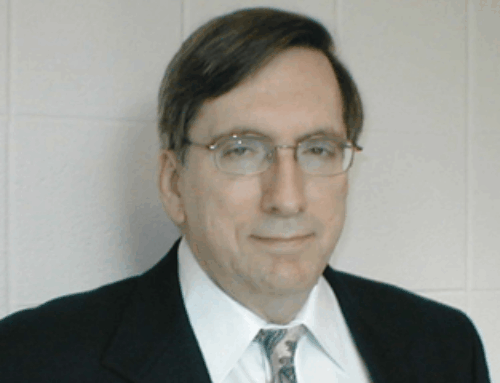WESTCHESTER, Ill.— February 1 kicks off American Heart Month, a month dedicated to awareness of the dangers of cardiovascular disease. While factors such as healthy eating, exercise and the avoidance of smoking are often cited as among the more common steps people can take to prevent cardiovascular disease, the American Academy of Sleep Medicine (AASM) reminds all Americans of another deterrent to cardiovascular disease: a good night’s sleep.
According to Lawrence Epstein, MD, AASM past president, medical director of Sleep HealthCenters and instructor of medicine at Harvard Medical School, treating sleep disorders and getting an adequate amount of sleep are pillars of good cardiovascular health.
“Sleep apnea is a known risk factor for the development of hypertension, heart disease and stroke,” said Epstein. “Also, chronic sleep deprivation has been shown to change metabolic function in a way that promotes weight gain and diabetes, two risk factors for heart disease.”
Dr. Epstein’s remarks support recent studies that link sleep apnea to cardiovascular disease.
A study published in the December 1, 2006, issue of the journal SLEEP, showed that daytime sleepiness brought on by obstructive sleep apnea (OSA) may subtly impair cardiac function. Patients with OSA commonly complain of daytime sleepiness because of the fact that OSA causes your body to stop breathing during sleep the night before and can disturb your sleep numerous times.
Further, data from the “Sleep Heart Health Study” show that people with sleep apnea have a 45 percent greater risk for hypertension, a major predictor for cardiovascular disease, than people without the sleep disorder.
Ralph Downey III, PhD, of the Sleep Disorders Center at Loma Linda University Medical Center in Loma Linda, Calif., says he is amazed at the high percentage of patients who have both sleep apnea and cardiovascular disease. Research has built a compelling case that those with sleep-disordered breathing are at increased risk for hypertension, said Downey, adding that there is also a well-established connection between sleep apnea and heart failure.
“It makes not only scientific sense that such a relationship exists, but common sense as well,” said Downey. “If someone were to suffocate you with a pillow several hundred times a night, you would call the police. In the case of patients with sleep apnea, the airway blocks off due to obstruction and they stop breathing for 10 seconds to a minute, which is repeated hundreds of times in a night. The body, in essence, is being assaulted by the damage done from intermittent lack of oxygen to the heart, brain and other important organ systems, and yet such an assault goes unreported. That is, patients who have these symptoms don’t always have their sleep apnea corrected. Perhaps in the light of a metaphor such as the one of being assaulted by our own sleep disorder, people would take more care of their sleep. Their hearts will thank them.”
Dennis H. Nicholson, MD, medical director of the Sleep Disorders Center at Pomona Valley Hospital Medical Center in Pomona, Calif., says that more public education needs to be done in order to reach out to as many people as possible about cardiovascular disease, and notes that a good night’s sleep is critical to maintaining good health.
“Public education is an important and often neglected component in the overall strategy to improve sleep, cardiovascular outcomes and general well being,” said Nicholson, who added that reaching out to people about the importance of sleep may result in a decline in the number of reported cardiovascular diseases.
AASM is a professional membership organization dedicated to the advancement of sleep medicine and sleep-related research.
To arrange an interview with an AASM spokesperson regarding sleep and its usefulness for the heart, please contact Jim Arcuri, public relations coordinator, at (708)492-0930, ext. 9317, or jarcuri@aasm.org.




